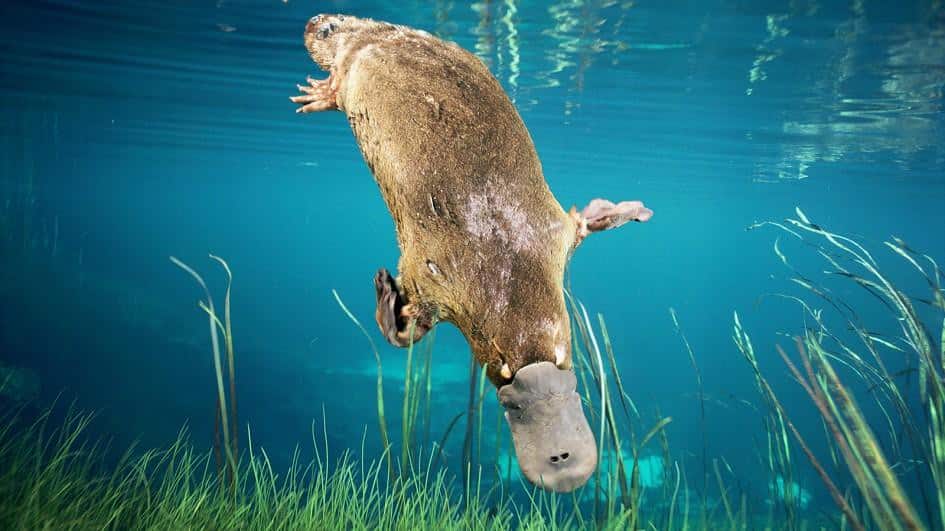Wondering what went right this week in the conservation world? We’ve got you covered with our Conservation Optimism Round-Up! We are collating stories of optimism from around the globe so that you never miss your dose of weekly motivation.
1. ‘Anthill tiger’: Putting one of Africa’s rarest wildcats on the radar
” German ecologist Alexander Sliwa has made it his life’s mission to research the elusive black-footed cat. Establishing and working with a small team, he eventually led the way to the formation of the Black-footed Cat Working Group. Thanks largely to those efforts, a substantial database on Felis nigripes now exists. This work led to the black-footed cat being listed as vulnerable on the IUCN Red List. Though the species’ survival remains far from secure, the design and implementation of conservation strategies will no longer have to start from scratch, and can be built on valuable, already accumulated baseline data. ”
Data-scarce species like the #BlackFootedCat are difficult to conserve because the most basic knowledge — of their home ranges, territories, habitat, and reproductive, dietary and other behaviors — is often lacking. https://t.co/1YMBnhu4IV #natureforall #conservationoptimism
— InternetOfElephants (@ioelephants) May 25, 2023
2. UK Ivory ban extended to hippos and four other species
” UK government acts over concerns that making the trade in elephant ivory illegal could have knock-on impact on other wildlife that is vulnerable to poaching. “
In addition to the ban on importing elephant ivory, UK gov bans import of hippo, narwhal, killer whale, sperm whale & walrus ivory. 🐘🐋#wildlifeconservation#hippos #ivorytrade #elephants #conservationoptimism #positivenews https://t.co/ik0zIzQkFq
— Conservation Success Stories (@Cons_Success) May 28, 2023
3. Platypus returns to Australian national park for first time in half a century
” The mammal is unique to Australia, but because of its reclusive nature and highly specific habitat needs, most in the country have never seen one in the wild. ”
After an absence of more than half a century, four Duck-billed #Platypus have been released into one of #Australia's oldest national parks south of Sydney!#speciesreintroduction #rewildling #speciesrecover #conservationoptimism #LetNatureThrive https://t.co/2afKjTxdII
— Global Conservation Solutions (@_GCS_) May 24, 2023
4. Up-Close Ecotourism Is Nurturing Gray Whales in Mexico
” “Their calves are just like human infants,” naturalist Jim Dorsey explains on the boat, “bumping into you, tumbling, playing. They don’t know their own strength yet.” When our 20-foot skiff (called a panga) turns back toward our camp at the shore of the San Ignacio Lagoon after 40 minutes, the two whales follow us like puppies that crave more attention.”
Thanks to #conservation efforts of a local cooperative, #wildlife is thriving in Baja #Mexico, providing people with sustainable livelihoods, and tourists with an unforgettable experience with Gray #Whales!#conservationoptimism #LetNatureThrive https://t.co/yzojxjsXP8
— Global Conservation Solutions (@_GCS_) May 20, 2023
5. Bigger than Bali: WA’s newest national park on the desert’s edge
” Western Australia has a new national park where science and Indigenous knowledge are combining to save endangered species.”
Thanks to the efforts of the #Martu people and the Western #Australian State government, a new #NP has been established, spanning 6,093 sq km and providing critical habitat for numerous species!#Aboriginal #conservationoptimism #LetNatureThrive https://t.co/iHbfOXPXUx
— Global Conservation Solutions (@_GCS_) May 23, 2023
6. Palau’s efforts to combat IUU fishing showing positive results
” Palau has ramped up its efforts to protect its oceans by increasing surveillance and monitoring activities, strengthening its legal framework, and partnering with other countries and international organisations to combat this growing global issue.”
Bit of #OceanOptimism 🌊 https://t.co/jtHbQItOku
— Dr. Teale Phelps Bondaroff (@TealePB) May 23, 2023
7. Tree islands enhance biodiversity and functioning in oil palm landscapes
“Our results demonstrate that enriching oil palm-dominated landscapes with tree islands is a promising ecological restoration strategy, yet should not replace the protection of remaining forests. ”
#ConservationOptimism https://t.co/0gNoXcIy8l
— Erle Ellis (艾尔青) (@erleellis) May 27, 2023
Have a story to share for our weekly round-up? Use #ConservationOptimism on Twitter, Facebook, LinkedIn and Instagram!


